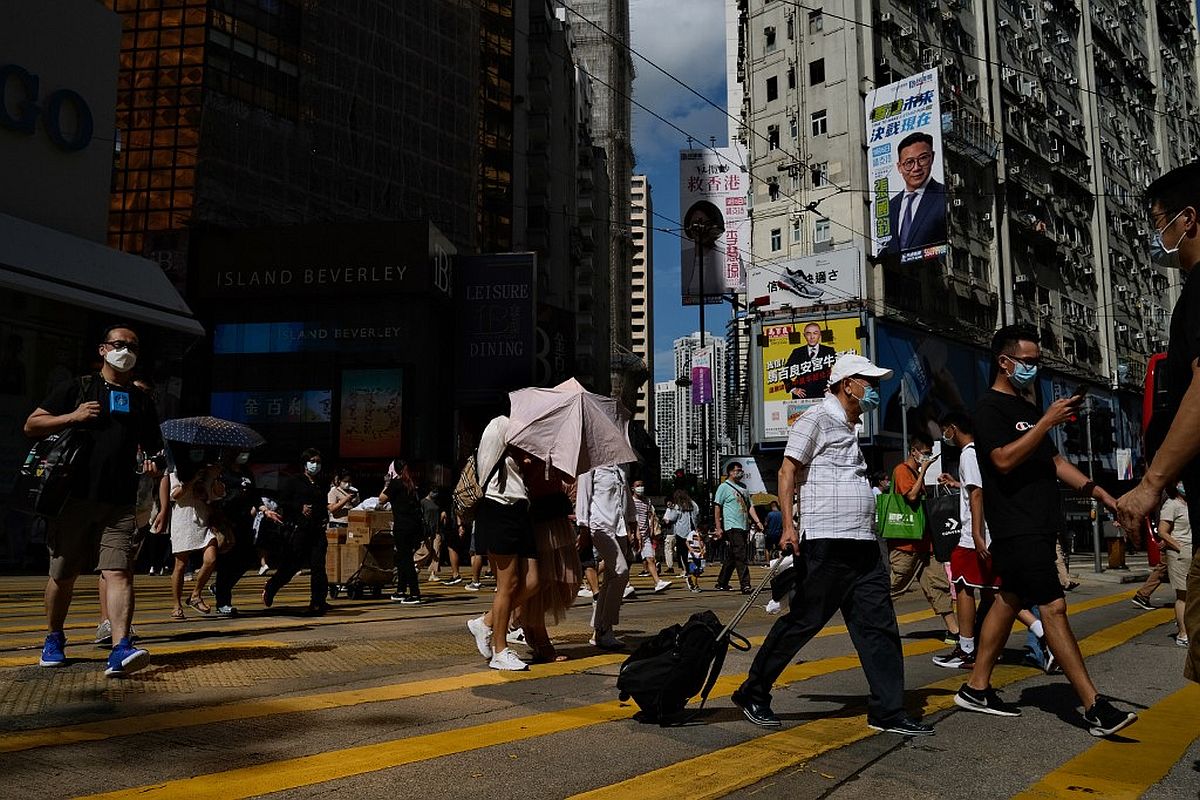Shared Waters
Water security has emerged as a critical issue in the Indo-Pacific region, where transboundary rivers of ten symbolise shared lifelines for multiple countries.
The latest arrests, which take the total of those arrested under the new law to 15, were made on suspicion of organising and inciting secession.

(Image: AFP)
The worst misgivings of activists in Hong Kong, and of observers around the world, have come true with the arrests on Wednesday of four student activists ~ aged between 16 and 21 ~ involved with a now-disbanded pro-Independence group under the new security law controversially introduced by Beijing in the island territory.
The latest arrests, which take the total of those arrested under the new law to 15, were made on suspicion of organising and inciting secession. An officer of the Hong Kong police told reporters, “Our sources and investigation show that the group recently announced on social media to set up an organisation that advocates Hong Kong independence.”
Advertisement
He added that computers, cell phones and documents were seized. While the police did not identify those arrested, and only confirmed they were all students, a member of Student Localism, the disbanded group, said its 19-year-old former president, Tony Chung, was among those arrested. In the wake of the new security law, Student Localism had announced last month that it was disbanding itself and had dismissed all its members, saying that only overseas chapters would continue to operate. China, of course, has warned that even overseas activities supporting independence for Hong Kong are proscribed and will invite action.
Advertisement
The arrests are likely to harden positions against Beijing in many Western countries, although how meaningful their responses will be remains to be seen. Already, Human Rights Watch has condemned the latest arrests and called for targeted sanctions against Hong Kong and Chinese officials responsible for the law. While the new law allows China’s security agencies to operate in the island territory,
Wednesday’s arrests were made by the local police. Criticism against the law, which was passed bypassing Hong Kong’s legislature, has stemmed from the fact that it trashes the “One country, two models” scheme accepted by Beijing at the time of the handover of Hong Kong in 1997. The law has provisions similar to those in force in China and it bears recall that it is these powers that Beijing routinely uses to crush dissent.
While its enactment in Hong Kong may push much of the opposition to China’s iron fist underground, it is unlikely to entirely stifle dissent, if the anger of the young activists who battled the authorities for several months last year is any indication. Dissent though seldom bothers Beijing, and it is unlikely to do so now. But the Hong Kong dream lies shattered.
Advertisement